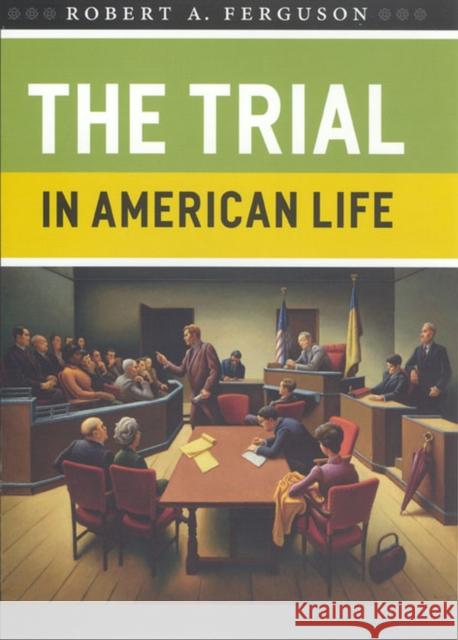The Trial in American Life » książka
The Trial in American Life
ISBN-13: 9780226243269 / Angielski / Miękka / 2008 / 414 str.
In a bravura performance that ranges from Aaron Burr to O. J. Simpson, Robert A. Ferguson traces the legal meaning and cultural implications of prominent American trials across the history of the nation. His interdisciplinary investigation carries him from courtroom transcripts to newspaper accounts, and on to the work of such imaginative writers as Emerson, Thoreau, William Dean Howells, and E. L. Doctorow. Ferguson shows how courtrooms are forced to cope with unresolved communal anxieties and how they sometimes make legal decisions that change the way Americans think about themselves. Burning questions control the narrative. How do such trials mushroom into major public dramas with fundamental ideas at stake? Why did outcomes that we now see as unjust enjoy such strong communal support at the time? At what point does overexposure undermine a trial s role as a legal proceeding?
Ultimately, such questions lead Ferguson to the issue of modern press coverage of courtrooms. While acknowledging that media accounts can skew perceptions, Ferguson argues forcefully in favor of full television coverage of them and he takes the Supreme Court to task for its failure to grasp the importance of this issue. Trials must be "seen" to be understood, but Ferguson reminds us that we have a duty, currently ignored, to ensure that cameras serve the court rather than the media.
"The Trial in American Life" weaves Ferguson s deep knowledge of American history, law, and culture into a fascinating book of tremendous contemporary relevance.
A distinguished law professor, accomplished historian, and fine writer, Robert Ferguson is uniquely qualified to narrate and analyze high-profile trials in American history. This is a superb book and a tremendous achievement. The chapter on John Brown alone is worth the price of admission. Judge Richard Posner A noted scholar of law and literature, Ferguson] offers a work that is broad in scope yet focuses our attention on certain themes, notably the possibility of injustice, as illustrated by the Haymarket and Rosenberg prosecutions; the media s obsession with pandering to baser instincts; and the future of televised trials. . . . One of the best books written on this subject in quite some time. "Library Journal," starred review"











